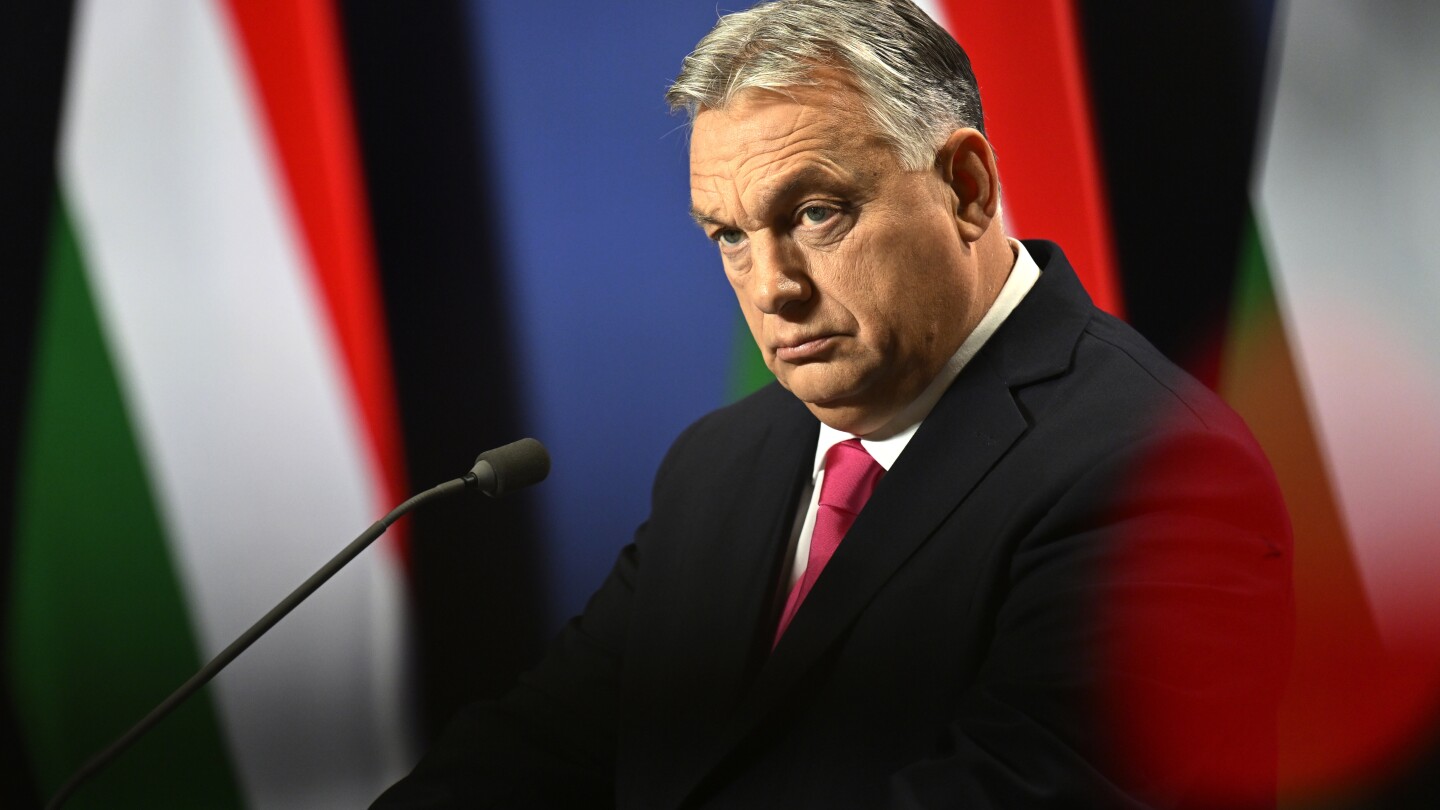BUDAPEST, Hungary (AP) — Hungary’s long-serving government of Prime Minister Viktor Orbán faces a rare political crisis after the president resigned amid public anger over her pardoning of a man convicted in a child sexual abuse case.
President Katalin Novák’s weekend resignation came after it was revealed that she issued a pardon in April 2023 to a man convicted of hiding child sexual abuses in a state-run children’s home. Justice Minister Judit Varga also announced her retirement over her role in endorsing the decision.
Some of Orbán’s opponents say the resignation of two senior members of his nationalist Fidesz party is not enough, and that Orbán must bear the political consequences.
“Viktor Orbán was not ashamed to hide behind the skirts of two women instead of taking responsibility,” said Anna Donáth, a lawmaker in the European Parliament for the Hungarian opposition party Momentum. “That is why this matter cannot be allowed to to close like this.”
Orbán has not publicly reacted to the resignations.
The European Union’s longest-serving leader and his Fidesz party have ruled Hungary with a nearly unbroken constitutional majority since 2010. After placing loyalists at the heads of governmental and judicial institutions, and seizing control of swaths of Hungary’s media, Fidesz has made easy work of defeating opponents.
But Novák and Varga’s resignations have divided Orbán’s supporters and led some to believe that they were sacrificed to shield the prime minister from the political consequences of the scandal, said Dániel Hegedus, an analyst and Central Europe fellow for the German Marshall Fund.
The resignations “go against the logic of how loyalty was built into the Orbán regime until now,” Hegedus said. “It’s dividing the Fidesz core electorate on whether these two politicians should really have been sacrificed.”
Novák, a former vice president of Fidesz, served as the minister for families until her appointment to the presidency in 2022. She has been outspoken in advocating for the traditional family and the protection of children, a cornerstone of Fidesz’s image as a defender of Christian conservative values.
But her presidential pardon struck at the heart of her party’s reputation and threatened to alienate parts of its conservative voter base.
“I think they clearly saw in their internal polling that the situation is becoming dangerous, and critical electoral groups are rejecting the behavior of the former president,” Hegedus said of Fidesz.
Some of Orbán’s biggest rivals are pushing for further consequences.
Democratic Coalition, the largest opposition party, has called for direct presidential elections instead of having Novák’s successor appointed by Fidesz’s majority in parliament.
In a Facebook post, Ferenc Gyurcsány, the leader of Democratic Coalition and prime minister from 2004 to 2009, vowed that two of Orbán’s closest allies stepping down would not be enough to put the controversy to rest.
“The resignation of Novák and Varga did not close the case, it opened it up,” he wrote.
But the leader of Fidesz’s parliamentary caucus, Máté Kocsis, has rejected the notion of a direct election.
“It doesn’t work that when the left is in power, they elect the president, and when we are in power, the people elect the president,” Kocsis said.

